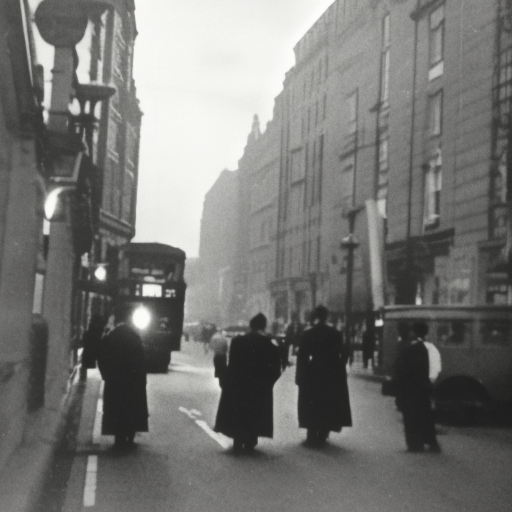The Blitz: A Devastating Bombing Campaign on Britain during World War II
The Blitz was a sustained bombing campaign carried out by the German Luftwaffe against Britain during World War II. It lasted from September 1940 to May 1941 and was a major part of Germany’s strategy to weaken British morale and force the country to surrender. The term “Blitz” is derived from the German word “Blitzkrieg,” meaning lightning war.
The Beginning of the Blitz
The Blitz began on September 7, 1940, when German bombers targeted London. This marked a shift in German tactics, as they had previously focused on attacking British airfields and military installations. The change in strategy was prompted by the failure of the Luftwaffe to gain air superiority over the Royal Air Force during the Battle of Britain.
The Intensity of the Bombing
During the Blitz, German bombers dropped thousands of tons of high-explosive bombs and incendiary devices on British cities, particularly London. The bombing raids were relentless and occurred both during the day and at night. The Luftwaffe targeted industrial areas, transportation infrastructure, and civilian neighborhoods. The aim was to disrupt production, destroy morale, and break the will of the British people.
The Impact on London
London bore the brunt of the Blitz, with the city experiencing 57 consecutive nights of bombing. The iconic St. Paul’s Cathedral and Buckingham Palace were among the many landmarks damaged during the raids. The East End of London, a densely populated area, suffered particularly heavy damage. The London Underground became a refuge for civilians seeking shelter from the bombings.
Other Cities Affected
While London was the primary target, other major cities in Britain also faced significant damage during the Blitz. Coventry, Birmingham, Liverpool, and Manchester were among the cities that experienced devastating bombings. The industrial city of Coventry was hit particularly hard, with the destruction of its cathedral becoming a symbol of the Blitz.
The Response of the British People
Despite the destruction and loss of life, the British people showed remarkable resilience and determination during the Blitz. The government implemented various measures to protect civilians, including the construction of air raid shelters and the evacuation of children from major cities. The spirit of unity and defiance was captured in Prime Minister Winston Churchill’s famous speech, in which he declared, “We shall never surrender.”
The Role of the Royal Air Force
The Royal Air Force played a crucial role in defending Britain during the Blitz. Despite being outnumbered, RAF pilots and aircrews fought valiantly to repel German bombers and protect British cities. The use of radar technology and the bravery of the RAF’s fighter pilots, known as the “Few,” were instrumental in the defense of the country.
The End of the Blitz
The Blitz gradually tapered off in May 1941, as Germany shifted its focus to the invasion of the Soviet Union. By this time, the Luftwaffe had failed to achieve its objectives of breaking British morale and forcing surrender. The resilience of the British people and the effectiveness of the RAF had thwarted Germany’s plans.
The Legacy of the Blitz
The Blitz had a profound impact on Britain. It caused widespread destruction and loss of life, with an estimated 43,000 civilians killed and over a million homes destroyed or damaged. However, it also strengthened the resolve of the British people and showcased their ability to withstand adversity. The Blitz became a symbol of national resilience and unity in the face of overwhelming odds.
In conclusion, the Blitz was a devastating bombing campaign carried out by the German Luftwaffe against Britain during World War II. It targeted major cities, particularly London, and caused widespread destruction and loss of life. However, the British people showed remarkable resilience, and the Royal Air Force played a crucial role in defending the country. The Blitz ultimately failed to achieve its objectives, but its impact on Britain and its people cannot be underestimated.












